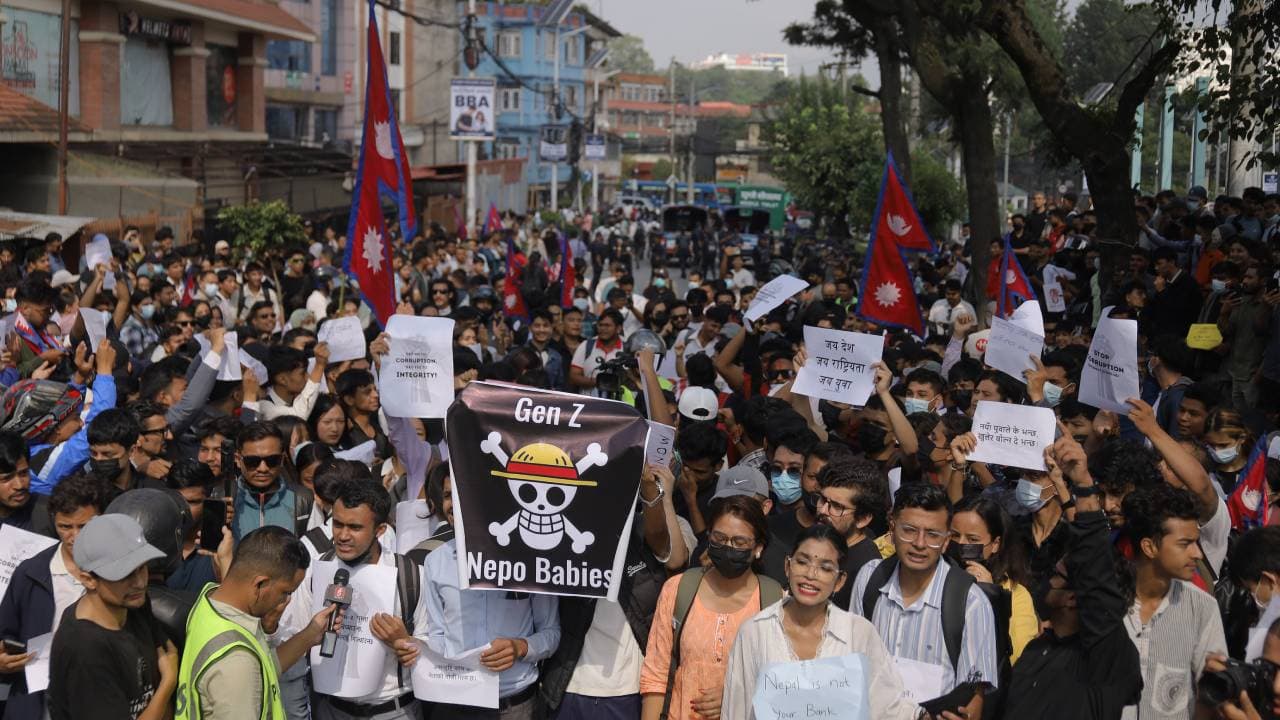Gen Z protesters in Nepal are demanding a constitutional rewrite, probe into 30 years of corruption and job reforms amid violent unrest. They seek a transparent system, recognition for martyrs, and relief for families as the political crisis deepens.
Nepal is in the midst of one of its most intense political crises in recent history. Gen Z-led protesters, mostly young people frustrated by corruption, unemployment and lack of opportunities, have forced Prime Minister KP Sharma Oli to resign. But their movement does not stop there. They are demanding sweeping reforms that they say are necessary to fix the country’s broken political system.
Protesters call for a Constitutional rewrite and corruption probe
“This is not a protest for a party or an individual, but for the entire generation and the future of the nation,” said a statement from the protesters. “Peace is essential, but only possible with a new political system.”
‘Martyrs to be honoured’
The movement also demands that those who lost their lives in the protests be officially recognised as martyrs. The families of the deceased should receive state honours, recognition, and financial relief. The protesters view this as a way to honour their sacrifice and ensure their deaths are not forgotten.
Additionally, the organisers have promised special programs to address two major problems: unemployment and high migration of young people abroad in search of work. Nearly 5,000 young Nepalese leave the country every day to seek jobs in other countries. Protesters argue this hurts the nation’s future and should be stopped with better local job opportunities.
Violent unrest and army takeover
The protests began on September 8, after the government imposed a controversial ban on major social media platforms such as Facebook, X and YouTube. Officials cited tax revenue and cybersecurity as reasons, but protesters saw it as an attempt to suppress free speech. In the first two days, protests quickly turned violent. Protesters stormed the Parliament building and set it on fire. At least 19 people were killed, and over 500 were injured during clashes with security forces.
The Nepali Army took control of nationwide security operations on September 10, imposing curfews in key cities such as Kathmandu, Lalitpur, and Bhaktapur to contain the unrest. The Army also warned that some groups were using the protests as a cover for criminal activities like arson and looting.
Dialogue hopes as President steps in
Amid the crisis, President Ram Chandra Paudel has stepped forward to find a peaceful solution. He accepted PM Oli’s resignation and called for dialogue between the Gen Z protesters and the government. In a statement quoted by The Himalayan Times, the President urged calm and said: “In a democracy, the demands raised by citizens can be addressed through dialogue and negotiation. We must avoid further harm to the nation.”
One of the protesters, Subhash, told ANI: “The violent protests of the last two days may stop, but our fight continues. We demand new rules against corruption, good leadership, and real opportunities for youth in Nepal.”
Subhash stressed that the movement was not over. “Now that corrupt leaders have fled, we need a new leader and a new system that serves the people.”
What began as a protest against a social media ban quickly turned into a powerful call for structural political change. The protesters want transparency in governance, accountability for past wrongs, and a future where young people can build their lives in Nepal without being forced to leave.
Their demands reflect a deep desire for a new political system, which that stands for democracy, fairness and opportunity.
